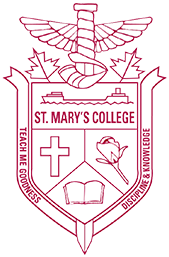Healthy Active Living (PPL M/F - Grades 9, 10, 11, 12)
Course Description
This course equips students with the knowledge and skills they need to make healthy choices now and lead healthy, active lives in the future. Through participation in a wide range of physical activities, students develop knowledge and skills related to movement competence and personal fitness that provide a foundation for active living. Students also acquire an understanding of the factors and skills that contribute to healthy development and learn how their own well-being is affected by, and affects, the world around them. Students build their sense of self, learn to interact positively with others, and develop their ability to think critically and creatively.
Units of Study
- Active Living (Active Participation, Physical Fitness, Safety)
- Movement Competence: Skills, Concepts, Strategies
- Healthy Living (Health Concepts, Healthy Choices)
Evaluation & Assessment
Knowledge/Understanding 15%
Thinking/Inquiry 10%
Communication 5%
Application 70%
Areas of Evaluation
- Participation
- Safety
- Social
- Performance
PAF 3O/40 – Personal and Fitness Activities
This course introduces students to the benefits of weight training, while addressing all components of physical fitness. The SMC fitness room is the location for most of the classes, with fitness days and trips to local health clubs, Catalyst and Sault College. This course is designed for students interested in training specifically for a sport or looking to improve their overall fitness level. Through a variety of aerobic and weight training activities, students will improve their personal fitness. Students will develop personal fitness programs to gain strength, tone muscles and/or enhance appearance. Safety, training techniques, anatomy and nutrition will be important topics discussed in the course.
Units of Study
Personal Fitness
Students through participation in various fitness activities, demonstrate respect for the rights, responsibilities and contributions of both self and others, e.g., modeling positive behaviour, encouraging others. Students assess their personal fitness levels, establish personal fitness goals and design and/or review personal fitness programs to gain strength, and tone muscles. Students participate actively and safely in vigorous physical fitness activities designed to maintain or improve personal fitness levels. Through a variety of aerobic and weight training activities, students will improve their personal fitness.
Body Management Activities
This unit will provide opportunities for students to practice, develop, and refine their movement skills and build their levels of fitness through physical activities that teach body management, control of body rhythm, creativity, sequencing, composition, and stability. Students will develop their aesthetic understanding of movement through activities such as aerobics, fitness enhancers, weight training, T25,yoga,P90X, Insanity, spinning, and recreation/leisure activities. Students will experience physical activities that promote participation, responsible behaviour, effective group work skills, personal safety and the safety of others.
Nutrition
In this unit, students explain how healthy eating fits into a healthy lifestyle. Students analyze the relationships among healthy eating, physical activity, and body image. As an extension to their personal fitness programs, students examine personal eating patterns and develop strategies for improvement. Students identify the relative effectiveness of different types of resources and support services related to healthy eating.
Basic Anatomy and Physical Fitness
Students explore basic anatomy of the human body using correct anatomical terminology and physiological principles to describe human performance. They demonstrate an understanding of the skeletal and muscular systems and joint mechanics related to movement. Students identify skeletal and muscular location. Students will demonstrate an understanding of fitness components by designing, participating in, and leading fitness activities, which incorporate these components. Students will develop and revise their fitness programs to address personal goals for health-related fitness. Students will create repertoire of physical activities that will be used to maintain or improve personal fitness and demonstrate leadership.
PSK 4U – Introductory Kinesiology
Grade 12 University Preparation
Course Description
This course focuses on the study of human movement and of systems, factors, and principles involved in human development. Students will learn about the effects of physical activity on health and performance, the evolution of physical activity and sports, and the factors that influence an individual’s participation in physical activity. The course prepares students for university programs in physical education, kinesiology, recreation, and sports administration.
Supporting The Catholic Graduate
The Exercise Science course challenges students to understand the importance of human movement and factors that affect the development of all humans. Students work as interdependent team members to critically understand material and present it to their peers. Students will show initiative and leadership in the development of projects and activities. This will challenge students to be sensitive to others and accept that each individual is a gift from God with something to offer. Students will accept accountability for themselves and their actions as they set and achieve goals. Class debates and discussions will contribute to the understanding and acceptance of other’s ideas and opinions.
100 Ontario Ave, Sault Ste. Marie, ON P6B 1E3
P: 705-945-5400 • TF: 1-800-267-0754 • F: 705-945-5575 • frontdesk@hscdsb.on.ca
Contact Us
868 Second Line E.
Sault Ste. Marie, ON
P6B 4K4
